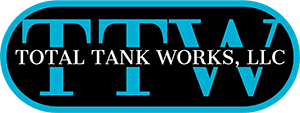Facility Operations Inspection
Documentation needed for Underground Storage Tank Inspection
Leak Detection Records
Tank
- 12 months of passing 0.2gph tank test via Automatic Tank Gauge
- 12 months of S.I.R. test results (Please note, inconclusive test results must be followed up by some other type of testing, verifying no leak is present.)
- 12 months of interstitial monitoring, double-walled tanks only
- 12 months of Inventory Control Records, this method can only be used if tank system is less than 10 years old
- Ground water and vapor monitoring are also acceptable methods, please contact TTW for more information
Product lines
Pressurized Piping Systems
- Within the last 12 months, passing 0.1 gph line test, single-wall pipe
- 12 months of S.I.R. test results (Please note, inconclusive test results must be followed up by some other type of testing, verifying no leak is present.)
- Within the last 12 months, passing Mechanical Line Leak Detector test, 3.0 to 3.5 gph @ 10psi protocol (Pressurized piping system, single-wall and some double-walled piping systems)
- Monthly interstitial monitoring, pressurized, complete double wall-piping systems only, via Automatic Tank Gauge systems, or visually with log
Suction Piping Systems
- Within the last 3 years, 0.1 gph line test for suction pumping systems that have check valves located at the tank or at the bottom of suction stub
- Exempt – Suction pumping systems that have only one check valve located under the suction pump, no leak detection records are necessary
Cathodic Protection
Cathodic Protection (Sacrificial)
- Cathodic Protection Survey every three years for StiP3 tanks, single-wall and flexible connectors which are in contact with the backfill material
- Current PADEP regulations require double-walled StiP3 tanks need only one passing Cathodic Protection Survey, usually performed at the time of install
Cathodic Protection (Impressed)
- Volt and Amp readings from rectifier (every 60 days minimum)
- Cathodic Protection Survey every three years
Sump Monitoring
- Sumps should be clear of liquid and/or debris at all times
- Last 12 months of Liquid Status reports or
- Last 12 months of documentation of visual monitoring
Sump Sensor Evaluation – Annual
- If using sensors to monitor sumps, the sensors need evaluated on an annual basis to ensure equipment is functioning properly
Current tank registration available
Operator training
- A B operator training available
- C operator training available (C operators need retrained within last 12 months)
Emergency Procedures are posted
Walk-through Inspection Form Download Here
Fill out my online form.
